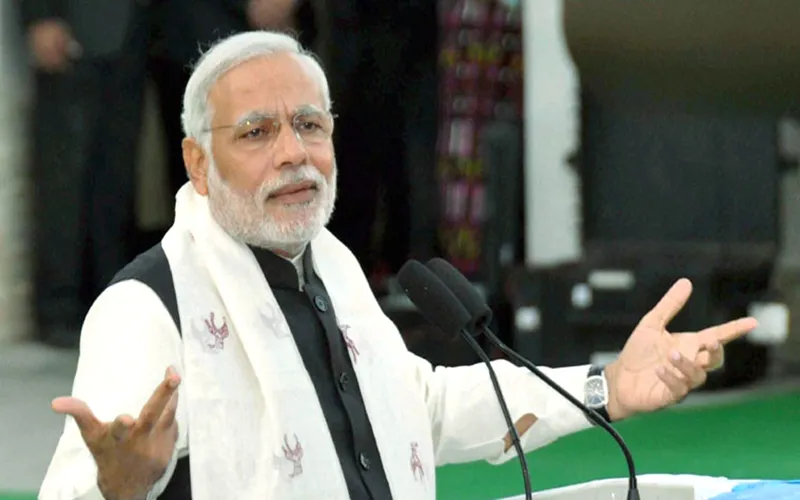-
CENTRES
Progammes & Centres
Location
Constructing a border of cooperation with Bangladesh should liberate India from one of major geopolitical constraints imposed on it by the Partition of Bengal. When he travels to Dhaka in the near future, Modi is in a position to unveil a genuine strategic partnership with Bangladesh.

In telling the BJP workers in Assam that India will go ahead with the ratification of the land boundary agreement with Bangladesh, Prime Minister Narendra Modi has put the imperatives of national interest above the regional populism of his own party.
The land boundary agreement signed in Dhaka by Prime Minister Manmohan Singh in September 2011 involves rationalisation of the messy boundary that India inherited from the partition of the Subcontinent. Since it involves the 'exchange' of territories, the agreement required an amendment to the Constitution.
The 119th amendment bill was placed in the Rajya Sabha late last year amidst vociferous opposition from the Trinamool Congress of Bengal and the Asom Gana Parishad in Assam. While the national leadership of the BJP did not oppose the tabling of the bill, it signaled ambivalence given the opposition from the party unit in Assam.
Much of the debate in Bengal and Assam about the agreement has been ill-informed. The agreement deals with tiny enclaves owned by one country but left inside the territory of the other at the time of Partition. This led to the tragedy of many people being left state-less and unable to access the benefits of development from either state. These enclaves have also become major sources of criminal activity.
Delhi and Dhaka rightly decided to exchange these enclaves after a survey of opinion in these enclaves-India would 'cede' 111 enclaves amounting to about 17,160 acres and 'gain' 57 enclaves spread over 7110 acres from the other.
The loss and gain of territory here is entirely notional for neither side was in control of these enclaves that they owned in theory since 1947. The overwhelming sentiment among people trapped in these enclaves is to stay put where they are rather than move to the other country.
While the Congress government in Assam supported the agreement, the Trinamool, AGP and the BJP played political football by raising concerns about 'loss' of territory.
Modi affirmed that the territorial swap with Bangladesh is in the interests of the nation. He also promised the people of Assam that Delhi will address their concerns on illegal immigration from Bangladesh. By framing an argument that limits the tension between 'national' and 'regional' interests, Modi has set the stage for the parliament's approval of the 119th Constitution Amendment Bill.
The standing committee on external affairs had recently cleared the bill and the government is expected to seek approval of the two houses. India's ratification of this agreement will mark a comprehensive territorial settlement of its longest land border. At 4060 km, India's boundary with Bangladesh is longer than those with China and Pakistan.
Having a settled boundary will now allow Delhi and Dhaka to consider effective management of the border - through more intensive cooperation on countering terrorism and extremism, facilitating trade across this long frontier, building trans-border industrial corridors and preventing illegal movement of people.
Constructing a border of cooperation with Bangladesh should liberate India from one of major geopolitical constraints imposed on it by the Partition of Bengal. When he travels to Dhaka in the near future, Modi is in a position to unveil a genuine strategic partnership with Bangladesh.
(The writer is a Distinguished Fellow at Observer Research Foundation and a Contributing Editor for The Indian Express)
Courtesy: The Indian Express, December 1, 2014
The views expressed above belong to the author(s). ORF research and analyses now available on Telegram! Click here to access our curated content — blogs, longforms and interviews.